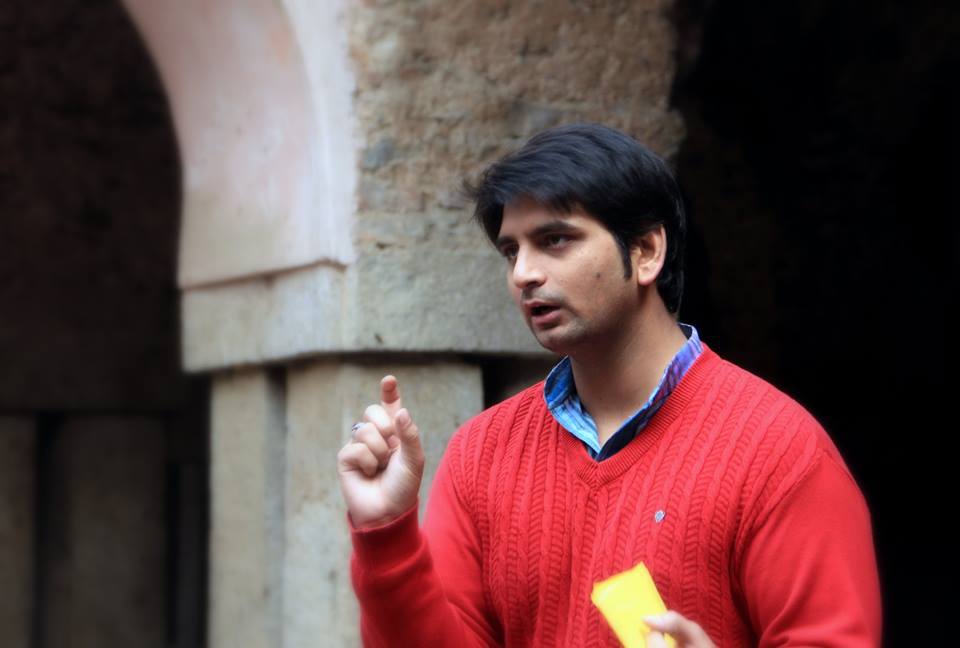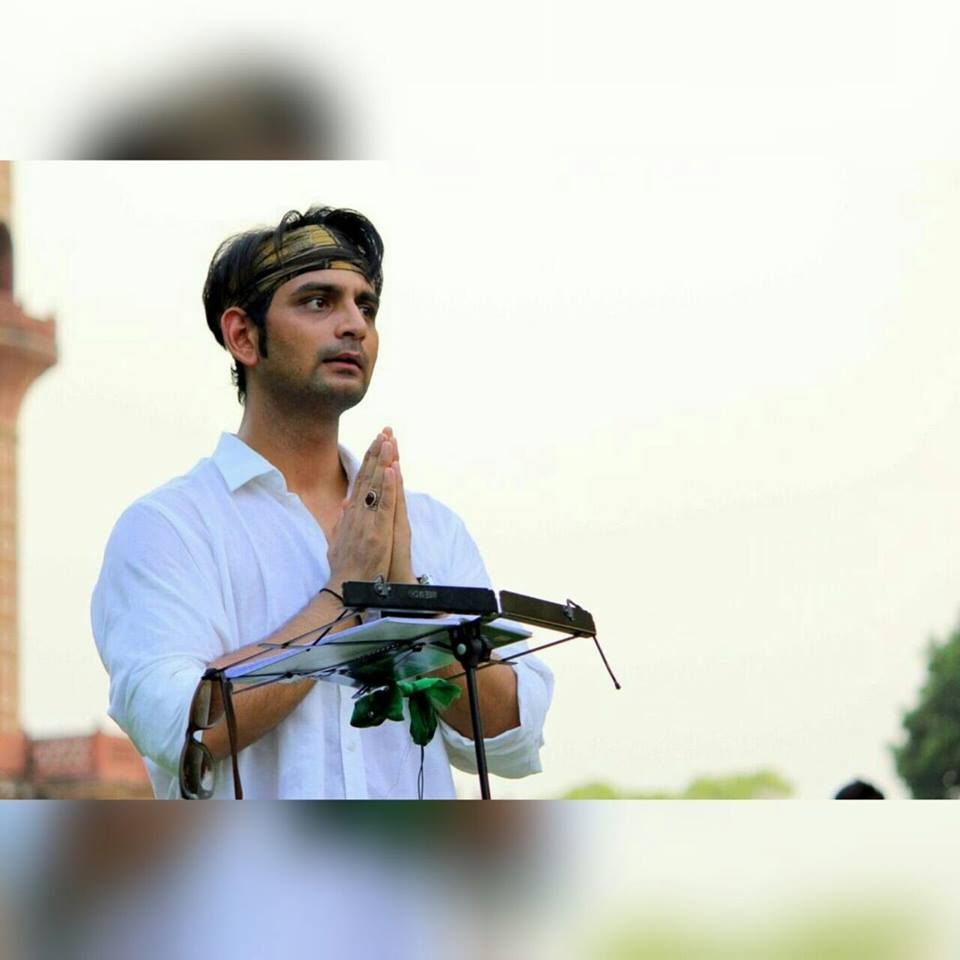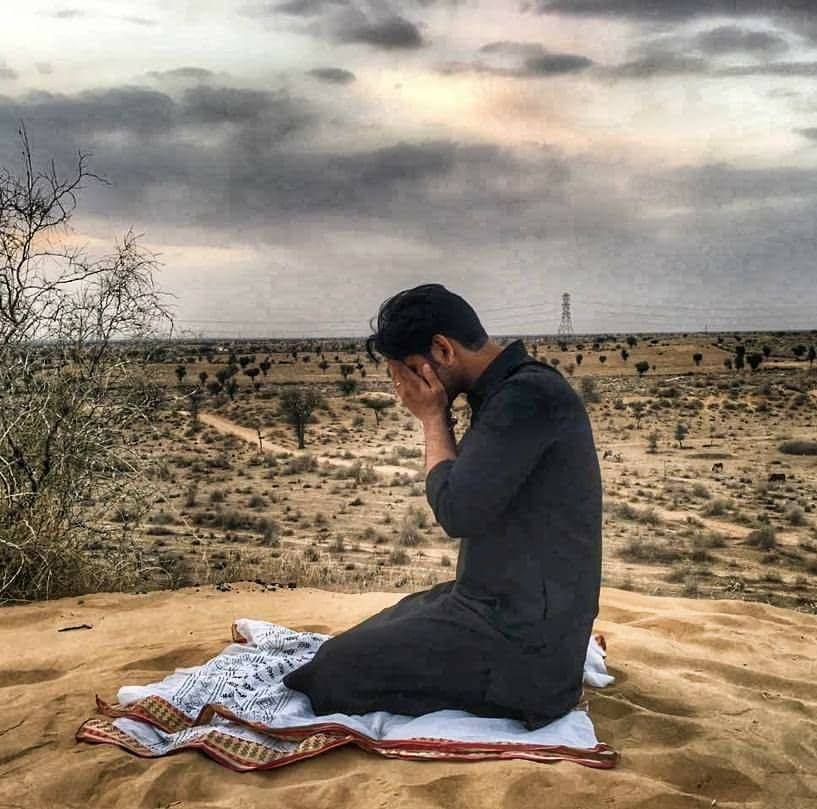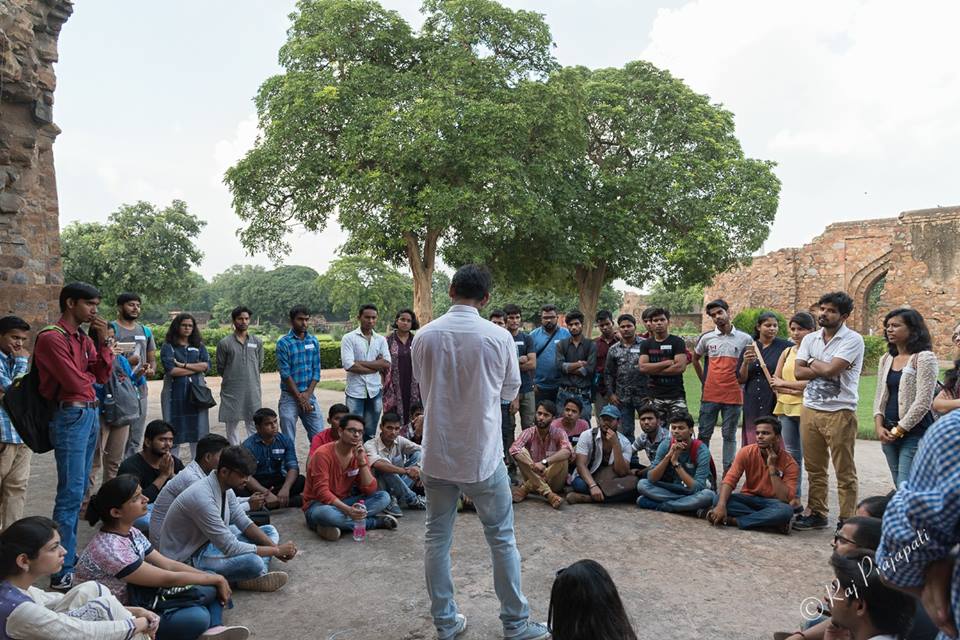Even as India remains caught in a whirlpool of political turmoil and religious polarisation, it is heartening to see there are many people who remain committed to promoting harmonious coexistence among Indians. The purpose is simple yet noble: to uphold the values of ‘Unity’ and preserve the tenets of ‘Diversity’ that India comprises of, among the countrymen.

Meet one such person, Asif Khan Dehlvi, a resident of Delhi who took to storytelling as a means of bringing back the glorious past of peaceful living and the Hindu-Muslim co-existence in the country through his narratives in Urdu and Hindi. Indian history, its cultural heritage and the tradition of tolerance are the prime motifs that Dehlvi tries to bring out through his narratives. In course of storytelling, he pours his passion into weaving threads of cordiality among brethren.

Dehlvi took to storytelling in 2011 when he left his corporate job after feeling discontent with his professional life and began ‘storytelling’ as a new venture for his career. Over the next two years, he focussed on honing his skills and in 2013 he founded ‘Delhi Karavan’. The first initiatives of re-telling the past of the country had a great impact on his career after the venture achieved success in Delhi he performed a number of times in Delhi over the next four years. In 2017, after the overwhelming success of ‘Delhi Karavan’, he founded ‘Jaypore Karavan’ and attended many programmes of re-telling the history, culture, and tradition of Rajasthan from various parts of the state like Jodhpur, Bikaner and Jaypore among others. In February 2018,, he founded ‘Calcutta karavan’ managed and curated by Suparna Deb with the same subject matter. The money is not great, he says, but nevertheless, he is not complaining.

Asif in his pray on the dunes of Bikaner, Rajasthan.
While speaking with TwoCircles.Net, Delhvi explained why he changed his career path. “The job I was doing was not actually for me. I felt I could do something better, something that encouraged a latent fascination of rejuvenating the past glory days of the country, its culture and religious tolerance towards other religions through my narratives.”
Talking about the various subjects he picks up for his storytelling, Dehlvi said he picked up specific portions of the history where he attends and shows people had lived peacefully together with the fellow Hindu-Muslims, absorbed each other’s culture, and sometimes even deities and religion. To him, re-telling the past is a way to entertain listeners, even though like bedtime stories usually heard from grandparents, they often contain lessons. The listeners, he says, are interested in seeing the history of the two hundred years before them through his words.

Asif Khan Dehlvi, narrating stories before the audiences
He stresses that his narratives have a great impact on the nation-building in a new way. Regarding this, he said, “since re-telling the past is all about life, people, religion, peaceful co-existence, culture, about communal harmony and staying together, people gain knowledge of the past on how Hindus and Muslims had lived together and celebrated festivals together. It enables them to differentiate the truth from whatever had been imposed in the name of history against each other and there is a new feeling for each other that will enable them to live peacefully”.
In the beginning, however, Dehlvi faced a series of difficulties. When he started this profession, he had to go through many harassments, humiliations and awkward and trivial questions from the audience. In his words, “ After the storytelling, I always try to keep a question-answer session. In the initial days, I faced uncomfortable situations with meaningless questions posed by right-wing-minded people in order to divert the topic and create a mess. But, now it is normal for me and I am habituated to handling these situations”.
In the course of his acts, Dehlvi has lived true to the name ‘Caravan’ and righteously performed the role of the caravan by ferrying ideas of retaining cultural heritage, reverence for one’s country’s historical treasure and taking pride in putting forth the essence of indigenousness.
Courtesy: Two Circles
